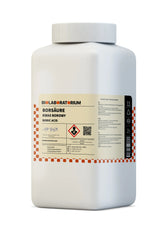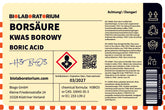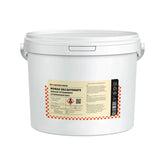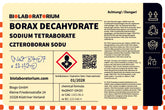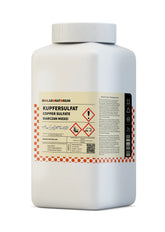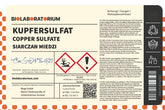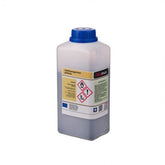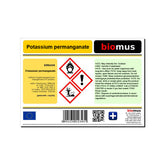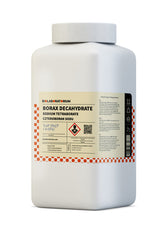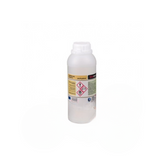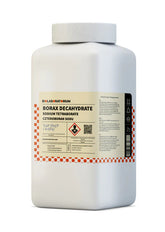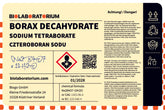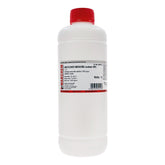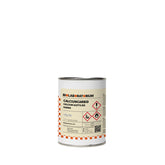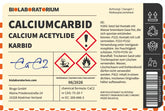Sodium benzoate: Chemical properties, reactions and safety
Sodium benzoate is a versatile chemical salt used in a variety of applications. In this blog post, we will take a closer look at the chemical properties, reactions, and safety aspects of sodium benzoate.
Chemical properties of sodium benzoate
Sodium benzoate, also known as sodium benzoate or E211, is the sodium salt of benzoic acid. It is a white, crystalline powder with the chemical formula C₆H₅COONa. Sodium benzoate is easily soluble in water and has a slightly salty taste.
The main properties of sodium benzoate are:
- Molecular weight: 144.11 g/mol
- Melting point: 400 °C
- Boiling point: Decomposes before boiling point
- Solubility: Well soluble in water, ethanol, and other polar solvents
Sodium benzoate is a relatively stable salt that does not easily decompose at normal temperatures and pressures. However, it is sensitive to acids, which can release benzoic acid.
Chemical reactions of sodium benzoate
Sodium benzoate can be used in various chemical reactions:
-
Acid-base reactions: Sodium benzoate reacts with acids to form benzoic acid and the corresponding sodium salt.
-
Complex formation: Sodium benzoate can form complexes with metal ions such as iron, copper, or zinc, which can be relevant for certain applications like corrosion protection or catalysis.
-
Oxidation/reduction: Under certain conditions, sodium benzoate can be oxidized or reduced, leading to other chemical compounds.
-
Thermal decomposition: At high temperatures, sodium benzoate decomposes into sodium, carbon dioxide, and benzene.
These chemical properties and reactions make sodium benzoate a versatile chemical with numerous applications.
Safety aspects of sodium benzoate
Although sodium benzoate is generally considered relatively non-toxic, some safety aspects must be observed during handling and storage:
Health hazards
- Acute toxicity: Sodium benzoate has low acute toxicity but can cause irritation if swallowed, inhaled, or in contact with skin.
- Chronic toxicity: There is no evidence of chronic health damage from sodium benzoate under normal exposure.
- Allergic reactions: Products containing sodium benzoate can trigger allergic reactions in sensitive individuals.
Fire hazard and explosion hazard
- Sodium benzoate itself is not flammable but can promote fires when in contact with strong oxidizing agents.
- When heated above the decomposition point, toxic vapors such as benzene can form.
Environmental hazards
- Sodium benzoate is water-soluble and can cause eutrophication in water bodies.
- Improper disposal can lead to soil and groundwater contamination.
To minimize these risks, applicable safety regulations must be followed when handling, storing, and disposing of sodium benzoate. These include, among others:
- Use of personal protective equipment (PPE) such as gloves and safety goggles
- Storage in a cool, dry, and well-ventilated place
- Separate storage of oxidizing agents
- Proper disposal through authorized disposal companies
By observing these safety measures, handling sodium benzoate can be done safely and responsibly.
Applications of sodium benzoate
Due to its diverse chemical properties, sodium benzoate is used in numerous industries:
Food industry
- As a preservative (E211) in beverages, dairy products, spreads, and other foods
- To stabilize pH values and prevent mold formation
Cosmetics industry
- As a preservative in creams, lotions, shampoos, and other personal care products
- To regulate pH value and prevent microbial infestation
Chemical Industry
- As a corrosion inhibitor in cooling lubricants, hydraulic fluids, and antifreeze agents
- As a starting material for the production of other organic chemicals
Pharmaceutical industry
- As an excipient in medications, e.g., to stabilize active ingredients
- For the production of pharmaceutical formulations
Further applications
- In paints, varnishes, and adhesives as a preservative
- In fire extinguishers as corrosion protection for metal parts
- In laboratory chemicals as a buffer and complexing agent
The versatile applications of sodium benzoate make it an important chemical in industry and research.
Conclusion
Sodium benzoate is a versatile chemical salt with a range of interesting properties and reactions. It is used in numerous industries, from the food and cosmetics industry to the chemical and pharmaceutical industries.
Although sodium benzoate is generally considered relatively non-toxic, some safety aspects must be observed during handling and storage. By complying with applicable regulations, handling sodium benzoate can be done safely and responsibly.
Overall, sodium benzoate is an important component of many industrial processes and products, whose chemical properties and reactions deserve a deeper understanding.

